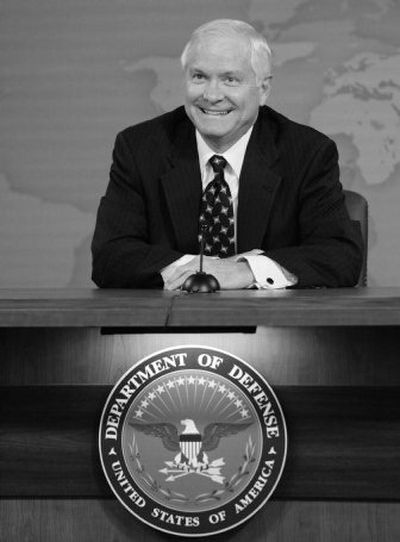Gates warns against war funds delay

WASHINGTON – As House Democrats edged closer Thursday to securing the votes to pass a war funding bill that would compel the withdrawal of U.S. combat forces from Iraq, Defense Secretary Robert M. Gates warned that the current troop buildup would be jeopardized by any delays in enacting the controversial bill.
House Speaker Nancy Pelosi, D-Calif., and her lieutenants appeared to make more progress in their drive to reach a majority as more of the war’s staunchest opponents lined up behind the measure.
A Pelosi spokesman said President Bush would be to blame for any effect that delays in passing a bill would have on the military, saying the president had failed to adequately fund the war.
But the warning from Gates, who has largely stayed out of the political fray in his first three months at the Pentagon, threatened to upset the coalition of moderate and liberal Democrats that party leaders have been laboring to assemble behind the historic measure.
The House is scheduled to vote today.
In his assessment – delivered during a morning meeting with lawmakers and then repeated to reporters – Gates said failure to pass the $124 billion funding bill within the next three weeks might force the Army to slow the training of units deploying to Iraq and Afghanistan.
He also cautioned that further delay into mid-May could force the Army to extend the deployments of troops in war zones beyond their usual one-year tours, since replacement forces would not have enough money to complete their pre-combat training.
Gates declined to tell the Democrats what they should do, saying only, “I think it’s my responsibility to let everybody involved in the debate know the impact of the timing of the decisions.”
But the political brinksmanship of his remarks was clear.
One military official, who spoke on the condition of anonymity since he was not authorized to discuss the secretary’s motivations, acknowledged that there was some politicking involved in the warning, noting that it was timed to come the day before the House is scheduled to vote.
As the House launched into a debate on its bill, the Senate Appropriations Committee approved its own version, which calls for the withdrawal of combat troops to begin within four months of the measure’s enactment and to end by March 31, 2008.
Pelosi, meanwhile, huddled in the morning with leading members of the Out of Iraq Caucus, who have complained that the timelines in the House bill, which mandate a withdrawal no later than August 2008, are not aggressive enough. But after the meeting, it appeared likely that only a handful would hold out against the bill.
“There was some nervousness that many of us who hate this war and want to end the war … may be playing into the president’s hands and giving him the victory he wants” by opposing the bill, said Rep. Jim McGovern, D-Mass., who attended the gathering.